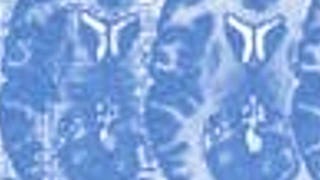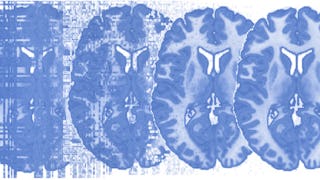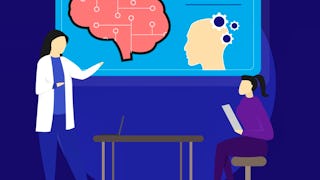10 Popular Medical Majors for a Career in Health Care
May 2, 2025
Article



This course is part of Neuroscience and Neuroimaging Specialization

Instructor: Arnold Bakker
77,595 already enrolled
Included with 
(2,245 reviews)
(2,245 reviews)

Add to your LinkedIn profile
4 assignments


Neuroimaging methods are used with increasing frequency in clinical practice and basic research. Designed for students and professionals, this course will introduce the basic principles of neuroimaging methods as applied to human subjects research and introduce the neuroscience concepts and terminology necessary for a basic understanding of neuroimaging applications. Topics include the history of neuroimaging, an introduction to neuroimaging physics and image formation, as well as an overview of different neuroimaging applications, including functional MRI, diffusion tensor imaging, magnetic resonance spectroscopy, perfusion imaging, and positron emission tomography imaging. Each will be reviewed in the context of their specific methods, source of signal, goals, and limitations. The course will also introduce basic neuroscience concepts necessary to understand the implementation of neuroimaging methods, including structural and functional human neuroanatomy, cognitive domains, and experimental design.
This week will introduce basic terminology in neuroscience and structural neuroanatomy of the human brain.
5 videos1 assignment4 discussion prompts
This week will introduce functional neuroanatomy of the human brain including cognitive domains and neuropsychological assessment of cognition.
5 videos1 assignment5 discussion prompts
This week will introduce the principles of neuroimaging and applications in structural and functional neuroimaging.
5 videos1 assignment5 discussion prompts
This week will introduce experimental design in functional neuroimaging and special methods in neuroimaging, including functional connectivity MRI, diffusion tensor imaging and spectroscopy imaging.
5 videos1 assignment4 discussion prompts
Add this credential to your LinkedIn profile, resume, or CV. Share it on social media and in your performance review.
We asked all learners to give feedback on our instructors based on the quality of their teaching style.



The mission of The Johns Hopkins University is to educate its students and cultivate their capacity for life-long learning, to foster independent and original research, and to bring the benefits of discovery to the world.

Johns Hopkins University
Specialization

Johns Hopkins University
Course

Johns Hopkins University
Course

Johns Hopkins University
Course




2,245 reviews
73.94%
20.57%
4.18%
0.66%
0.62%
Showing 3 of 2245
Reviewed on May 10, 2020
I recently completed an internship in a pediatric radiology lab in the DC Metro area. This course was great supplement to the knowledge received during that experience. Thank you!
Reviewed on Jun 1, 2020
Brilliant course, it has been complimentary towards my masters dissertation of studying neurocriminology within the UK. Thank you for providing an informative course.
Reviewed on Apr 7, 2019
I am an engineering graduate and wanted to learn fundamentals of Neuroscience for Neuroimaging studies. This course helped me a lot, highly recommended as an introductory course.

Unlimited access to 10,000+ world-class courses, hands-on projects, and job-ready certificate programs - all included in your subscription
Earn a degree from world-class universities - 100% online
Upskill your employees to excel in the digital economy
Access to lectures and assignments depends on your type of enrollment. If you take a course in audit mode, you will be able to see most course materials for free. To access graded assignments and to earn a Certificate, you will need to purchase the Certificate experience, during or after your audit. If you don't see the audit option:
The course may not offer an audit option. You can try a Free Trial instead, or apply for Financial Aid.
The course may offer 'Full Course, No Certificate' instead. This option lets you see all course materials, submit required assessments, and get a final grade. This also means that you will not be able to purchase a Certificate experience.
When you enroll in the course, you get access to all of the courses in the Specialization, and you earn a certificate when you complete the work. Your electronic Certificate will be added to your Accomplishments page - from there, you can print your Certificate or add it to your LinkedIn profile. If you only want to read and view the course content, you can audit the course for free.
If you subscribed, you get a 7-day free trial during which you can cancel at no penalty. After that, we don’t give refunds, but you can cancel your subscription at any time. See our full refund policy.
Yes. In select learning programs, you can apply for financial aid or a scholarship if you can’t afford the enrollment fee. If fin aid or scholarship is available for your learning program selection, you’ll find a link to apply on the description page.
Financial aid available,